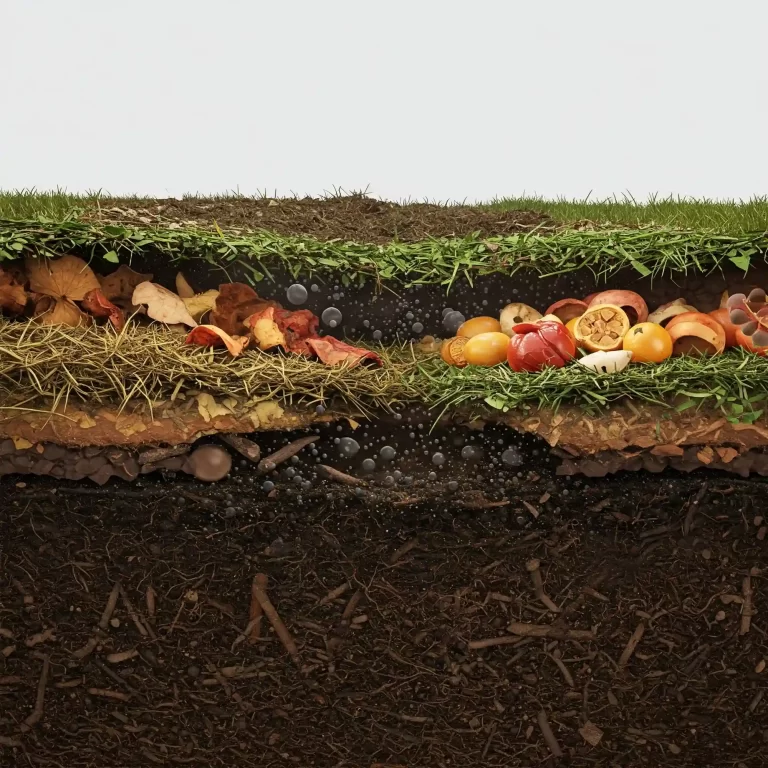Reducing Food Waste and Its Impact
Food waste is a global issue that not only contributes to environmental challenges but also leads to economic losses. In the United States, for example, about 30-40% of food produced goes uneaten, with households accounting for a significant portion of this waste. Composting and food waste reduction practices at home can make a substantial difference in addressing this problem.
By diverting food scraps and non-recyclable paper products from landfills, composting significantly reduces greenhouse gas (GHG) emissions. According to a study by the EPA, composting a ton of food waste can prevent nearly a ton of carbon dioxide equivalent (CO2e) from entering the atmosphere. CO2e is a measure of the warming effect of various greenhouse gases, which includes methane and nitrous oxide. Composting also helps to reduce the demand for chemical fertilizers and pesticides, further contributing to environmental sustainability.
Composting Methods at Home
There are several methods for composting at home. The most popular methods are:
- Backyard composting: This involves building a compost pile in your backyard or garden. You can compost food scraps, yard waste, and non-recyclable paper products. Backyard composting is a great option for those with space and the desire to maintain a compost pile.
- Vermicomposting: This method involves using worms to break down and decompose food scraps and other organic matter. Vermicomposting can be done indoors or outdoors in a specially designed bin or container. Vermicomposting is a low-odor and low-maintenance composting method.
- Bokashi composting: Bokashi composting involves fermenting food scraps and other organic matter using beneficial microbes. This method can be done indoors in a sealed container. Bokashi composting is a fast and effective method for composting food scraps, and it does not produce any odors.
The composting method you choose will depend on your space, lifestyle, and preferences. It’s important to note that successful composting requires a balance of “green” (nitrogen-rich) materials like food scraps and “brown” (carbon-rich) materials like paper products and yard waste.
Benefits of Composting at Home
Composting at home offers a range of benefits, including:
- Reducing landfill waste: Composting diverts food scraps and other organic waste from landfills, which helps to conserve valuable landfill space and reduce the environmental impact of waste disposal.
- Creating nutrient-rich compost: Compost is a natural soil amendment that improves soil structure, adds nutrients, and promotes healthy plant growth. Compost can be used in gardens, potted plants, and lawns.
- Reducing greenhouse gas emissions: As mentioned earlier, composting reduces GHG emissions by preventing food waste from decomposing in landfills, where it produces methane, a potent greenhouse gas.
- Saving money on fertilizers: Compost can replace chemical fertilizers, which can save you money on gardening expenses and reduce your environmental impact.
- Promoting sustainability: Composting at home is a simple and effective way to contribute to a more sustainable and environmentally friendly lifestyle.
Tips for Food Waste Reduction at Home
In addition to composting, there are other steps you can take to reduce food waste at home:
- Plan your meals and shop accordingly: By planning your meals in advance, you can avoid impulse purchases and buy only the food you need.
- Store food properly: Proper food storage can help extend the shelf life of your food and prevent spoilage.
- Use leftovers creatively: Leftover food can be transformed into new meals or snacks, reducing the amount of food that goes to waste.
- Compost food scraps and non-recyclable paper products: Composting is a great way to divert food waste from landfills and create nutrient-rich compost for your garden or lawn.
- Get creative with food scraps: Some food scraps, such as vegetable peels and eggshells, can be used for various purposes, such as making homemade cleaning products or natural pest repellents.
Conclusion
Composting and food waste reduction at home can make a significant difference in reducing environmental impact, conserving resources, and promoting sustainability. By composting food scraps and non-recyclable paper products, and by taking steps to reduce food waste, you can help address global challenges while also creating nutrient-rich compost for your garden or lawn.

